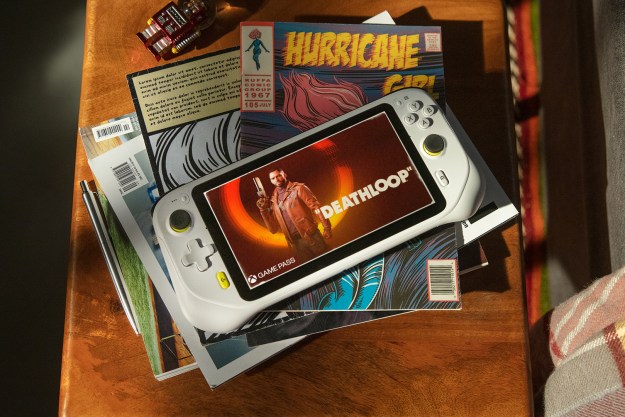Just a few words is all it took for Valve to show its cards when it comes to the soon-to-start cloud gaming war. The hint comes by way of a Github release of Valve’s partner site code, as spotted and shared by Steam Database on Twitter.
Within the Github code, there’s mention of cloud gaming, and a specific requirement statin, that “you must agree to the terms in the Steam Cloud Gaming Addendum before continuing.”
It may be a tiny morsel, but it’s a start for a meaty subject. Steam is a massive gaming platform for PC. But recently, major players like Google, Microsoft, and Sony have made serious pushes into cloud gaming with Stadia, Project xCloud, and PlayStation Now, respectively. Since cloud gaming doesn’t require dedicated gaming hardware to play, it has a lower barrier to entry than traditional console or PC gaming, and it could find a large user base.
The conveniences of cloud gaming also extend to things like load times (which can be incredibly fast, especially without the need to boot a computer or apply updates), the ability to play the same game on a wide range of devices wherever you go, and potentially even negative latency through some of Google’s A.I. trickery.
The potential of cloud gaming is clear, and companies that establish themselves early could have a lot to gain. They also could cut Valve out of the picture, since players wouldn’t go through Steam to get install and launch their games.
A move by Valve to introduce Steam Cloud Gaming makes perfect sense, and it’s almost a surprise to see it showing up this late. Steam already gets plenty of loyalty from gamers, with many raging when a game is exclusive to a different game store, and a Steam Cloud Gaming platform could be a smart way for the company to keep its gamers from being lured to other platforms that don’t require dedicated gaming hardware.
Die-hard PC gamers will likely continue to bristle at the notion of cloud gaming, as the video signal will be compressed and the travel time between users and servers will generally create more latency than gaming directly on a powerful computer. But all of the pros of cloud gaming are likely to make it a large platform that Valve can’t ignore.
Editors' Recommendations
- You can now launch Game Pass, Luna titles through Google Search
- This Google Stadia exclusive is trapped on the service due to port ‘complexity’
- Gylt, Google Stadia’s first exclusive, is coming to other platforms
- Ubisoft and more offer ways to play purchased Google Stadia games elsewhere
- This wireless workaround will give your Google Stadia controller new life




